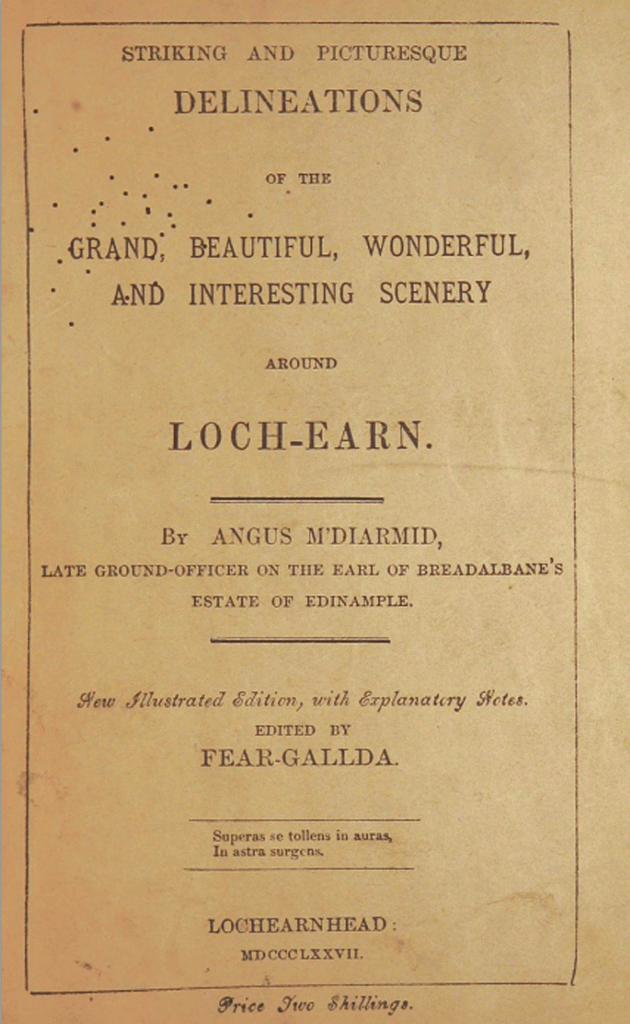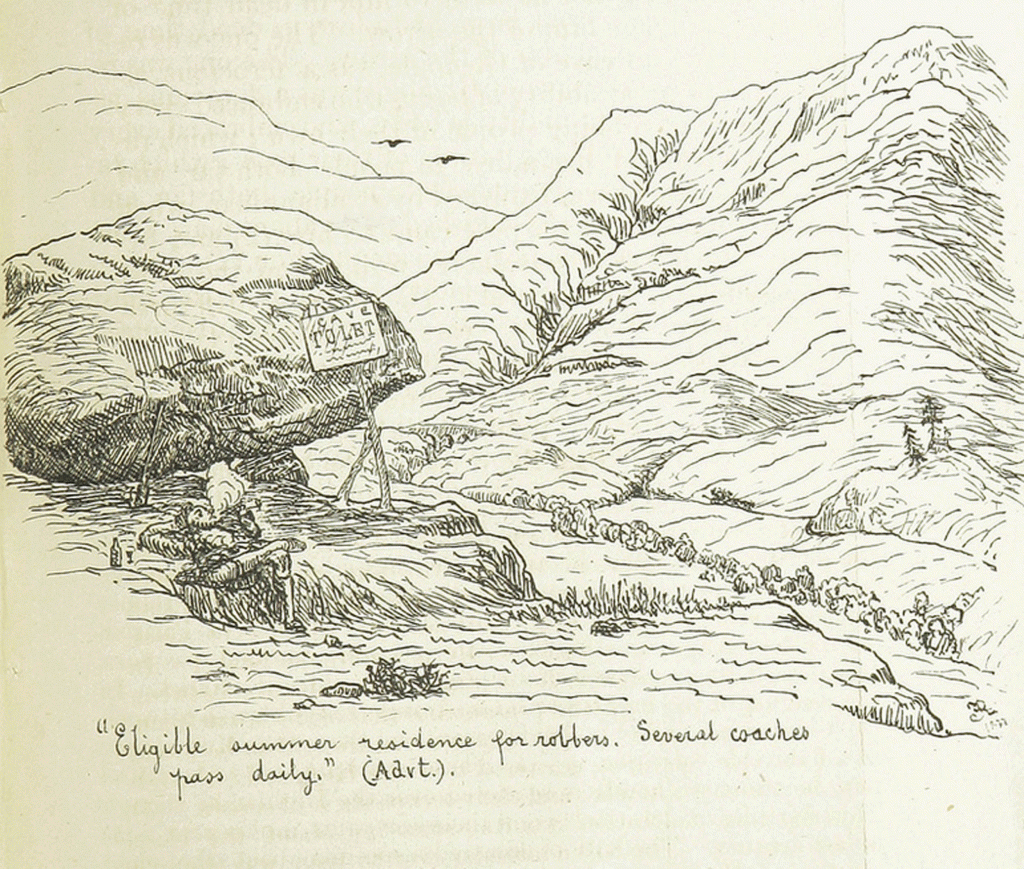A SCOTTISH gamekeeper once branded “the world’s worst author” is now being hailed as a literary giant.
Exactly 200 years ago, Angus McDiarmid wrote a book describing his estate and its surroundings, intended as a guide for visitors.
The 1815 work was written in English, the Gaelic-speaking author’s second language, and most readers at the time cruelly dismissed it as a joke.
But now an American academic has hailed McDiarmid’s slender, 28-page volume as an “unintentional Scottish masterpiece”.
Paul Collins – Professor and Chair of English at Portland State University, Oregon – even suggests the book is a precursor to the modernist classics of James Joyce and others around a century later.

The book is called “Striking and Picturesque Delineations of the Grand, Beautiful, Wonderful, and Interesting Scenery Around Loch-Earn.”
The work, which can now fetch £200 a copy at auction, features descriptions of the scenery of Loch Earn, the nearby mountains and a sketch of local history.
Most contemporary readers openly laughed at passages from the book which described “womens bewailing over the deprivation of their correlative husbands” and robbers as “men of incoherent transactions”.
One character in the book – injured by a bowman – is “seized of no less than nine arrows: Which occurrence in lower degree would enforce many to retire.”
But Collins, writing in New Yorker magazine, claims there is unintentional “linguistic greatness” in such passages.
The academic believes this genius stems from Gaelic peculiarities bleeding into the author’s use of English.

He wrote: “The linguistic influence of Gaelic seems to have played some part: Highland English has traditionally possessed such peculiarities as double plurals, hence his “womens bewailing.”
In writing the book – Collins adds – the author was “ransacking what was essentially a foreign dictionary” – resulting in a “gloriously weird vocabulary and grammar”.
He goes on: “It is McDiarmid’s sentences—fantastically clausal helices that would make a sentence-diagrammer faint—that defy explanation, even two hundred years later.
“Striking and Picturesque Delineations” is art, and art created by someone intoxicated by language. While his gloriously weird vocabulary and grammar may be the artifact of a second language, the architecture of his sentences is McDiarmid’s alone.”
Collins’ scholarship has even uncovered the fact that the great Russian-American author Valdimir Nabokov was apparently a fan.
Nabakov’s 1962 work, Pale Fire, references McDiarmid as anticipating Joyce’s final and most bewildering “novel”.
The narrator of Pale Fire suggests “Finnegans Wake as a monstrous extension of Angus McDiamid’s ‘incoherent transactions’”.
The reassessment of McDiarmid is all the more amazing as even his publisher printed it as a “literary curiosity” intended to amuse readers at the expense of the author.
The then poet-laureate Robert Southey recalled having McDiarmid read it aloud in public “to the great amusement of his fellow gillies as well as ourselves”.
Even as recently as 1988, local historian Archie McKerracher called McDiarmid “the world’s worst author”.
Hardly anything is known about McDiarmid beyond his one and only known literary effort. There are no known portraits and even his dates of birth and death have been lost. An unnamed traveller recalled meeting in 1815 and called him “a fine athletic young man”.
